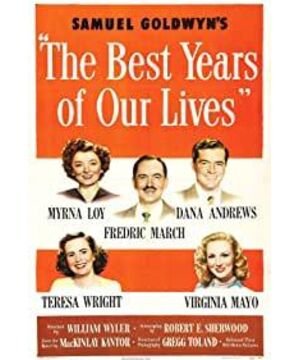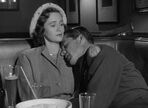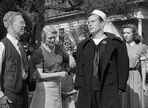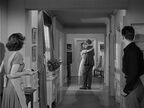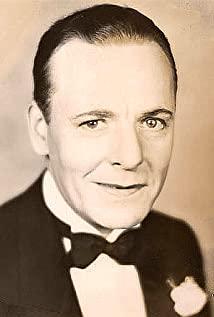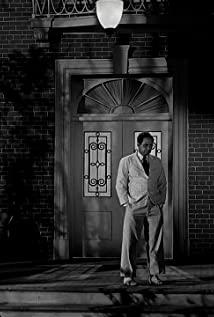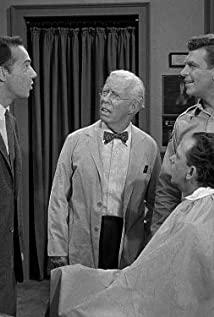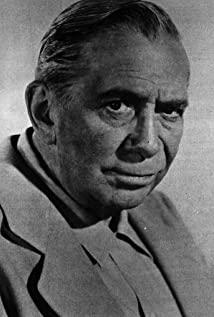It was the best of time.
In 1945, the United States and the anti-fascist alliance defeated Germany, Italy, and Japan, which were the axis of evil, and replaced Britain as the leader of the capitalist world. The economic and military influence of the United States has reached its peak, with its industrial production accounting for more than half of the world's total; there are more than 100 aircraft carriers of various types, and tens of thousands of tanks and aircraft. The American citizens bathed in the brilliance of Athena will inevitably have the posture of looking at the world and letting me go. The retired veterans returned with honour and enjoyed the same glory and status. Ordinary people need to wait at the airport for flights that are in short supply, while veterans can go home by military plane. In this way, the three protagonists of the film, Fred, Al and Homer, met on a military plane.
It was the worst of time.
The glory of the national level cannot conceal the trauma caused by the war to each individual: Homer lost his hands; Al returned home, facing the grown-up children, he was unable to enter the roles of ordinary people and fathers, and became infected. Suffered from alcoholism; as a bombardier, Captain Fred retired, but he did not want to return to the bar of a department store to continue working as a waiter. However, job opportunities were scarce after the war and he had to regain his old career and pay. From the US$400 per month in wartime, it was reduced to US$32.50 per month. But his troubles don't stop there. His wife Mary is accustomed to extravagant spending, and goes into and out of nightclubs during wartime, becoming romantic.
It was the age of wisdom.
Unlike Fred, Al's situation is good. He originally worked in a bank. Due to his superior's appreciation, although he retired as a sergeant after the war, he was directly promoted to the manager of the micro-loan department and worked for retired personnel. But soon he had a disagreement with his boss: some retired personnel did not have the ability to mortgage, so they could not meet the loan requirements. But Al was more concerned to reiterate the borrower's experience, will, etc., perhaps thinking of his fellow-mates, and made an exception for Novak, who was eager to run a farm. The boss believes that this is contrary to the principle of lending and will bring risks to the bank, so he asked Al to not be an example. At the ensuing banquet, it was Al's turn to speak, and he took the opportunity to tell such a fable: During the war, the chief asked him to take down a mountain. However, he used his work and learned to assess risks like a bank, and then refused to execute the order. As a result, the United States lost the war. Indeed, this is the difference between the two kinds of thinking: one has to calculate benefits and risks without losing money; while the other one does not consider life or death. In terms of international relations at the time, the United States faced similar problems. Many of the policies implemented by the United States, including the Marshall Plan, may be free and loss-making transactions, but why did they do so? This is not only the least businessman’s behavior, but in fact it is also the most businessman’s behavior. The dividends it brings still benefit the United States today. The United States bet on the battered Europe and Japan will recover and develop, and this will be more beneficial than the continuous blood transfusion for the dying.
It was the age of foolishness.
Fred was born and died on the front line, but his wife Mary lived and sang every night in her hometown. She was supposed to take care of Fred's parents, but after receiving Fred's allowance, she moved into the city by herself. In fact, Mary (including Fred's stepmother) did not understand the country's major policies or the meaning behind the military behavior, but just greeted Fred's preferential treatment guarantee. At the same time, the status of military family members satisfies her vanity. When Fred took off the military uniform and her income fell, she could no longer satisfy her desires, so her "love" for her husband ended.
The baptism of patriotism and heroism in the war does not allow the deep-rooted capitalism to retreat. As a poor second generation, Fred could not turn around by going to the front, but Al was still able to return to his bank job. The capitalists are still playing the game of capital marriage, and Kuo Shao pursues the manager's daughter Peggy. But Fred's sudden intrusion was unexpected to Al. War does not change the social structure of the United States. Its operating rules can only create more characters like Mary.
It was the epoch of belief.
Despite the cruel facts, Fred and Homer both believed that their sacrifice was worthwhile. When they met anti-war activists and conspiracy theorists, they did not hesitate to fight, and Fred even lost his job for this. Today, 80 years have passed, and many problems have been reassessed, especially the United States, one of the leaders of the anti-fascist alliance, has become an American imperialism and launched many wars of aggression. However, the significance of the anti-fascist war cannot be denied, and the merits of the anti-fascist alliance cannot be denied. The Vietnam War cannot be compared with the Anti-Fascist War: Why did the United States win the Pacific War, because this is the aspiration of all peace-lovers in this country and the world; And all peace lovers in the world will not support it. Perhaps, in the movie "Golden Age", the focus should be on the destiny of the individual, and the emotions of people are interlinked. In the face of major events, all everyone can do is make up their own determination, and it is often consistent with the will of the country, and personal honor, disgrace, sacrifice, and gain will follow. In this case, the vast majority of people can only believe, and there are not so many conspiracies to talk about.
It was the epoch of incredulity.
But doubt is human nature. Patriots such as Frederick eventually threw the honor certificates at home, and they didn't even exchange him for a satisfactory job. Everyone is the same. When you give a lot and get nothing, you will wonder whether the effort is worth it. Homer doubts whether Wilma can accept her disability and whether she can understand the meaning of sacrifice. He does not believe that Wilma can love him as always; Peggy doubts whether Fred loves her as much as he loves him. As for having to break up other people's marriages. Even if her intuition tells her that Fred and Mary have different values and they have no happiness at all, but only a few words from her mother and a phone call from Fred make her fall into doubt again. Yes, in the face of major historical events, people may not hesitate so much, because the will of the state is already holding people forward, and there are not many choices. It may not be every individual who makes the decision. But personal problems still require personal will to complete. When the enemy lifts the bayonet towards you, don't think too much, and fight the enemy bravely. But when you decide which person's hand to put the ring on, this is a problem. Maybe, practice it like Homer (literally). Therefore, the situation may not be less, but the children must be prosperous.
In short, this is a film that is not fast-paced but worth chewing slowly. If you want to summarize, then continue to quote: this is the bright season, this is the dark season; this is the spring of hope, this is the disappointing winter ; People have everything, people have nothing; people are on the road to heaven, people are running in the opposite direction. This is the golden age and the dark age.
View more about The Best Years of Our Lives reviews


